- Home
- Types of Addiction
- Heroin Addiction Help & Treatment
Heroin Addiction Help & Treatment
Heroin is a processed form of morphine that produces a calming effect, reducing pain and giving users a rush within a few seconds of using it.
Small doses give a general sense of well-being and larger ones cause extreme relaxation.
But heroin addiction is one of the biggest challenges that is facing humanity today.
It is much more addictive than morphine and causes rapid physical as well as psychological dependence.
The abuse of opioids affects people of all ages.
Even though it is an incredibly difficult substance to quit, it is not impossible.
Signs And Symptoms Of Heroin Use
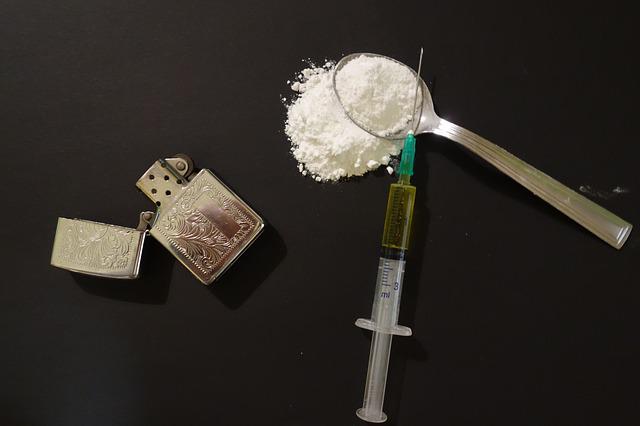
Do you know someone who is worrying you by exhibiting a possible addiction to heroin?
If you suspect a loved one is using heroin, you may wish to look out for certain signs and symptoms:
1. Psychological
Users of heroin may display many psychological signs of use.
These could be feelings of guilt or hopelessness, or you may notice that their attention and focus are more lacking than usual and that their judgement becomes impaired.
People struggling with heroin addiction might also appear to be confused or disorientated.
2. Physical
When using heroin, people tend to lose a lot of weight as well as develop extreme fatigue or exhaustion, potentially due to problems with insomnia.
In addition to this, you may also notice that the person suffers from flu-like symptoms that do not clear up including watery eyes and a runny nose.
They may become constipated and have serious problems with the liver and kidneys.
Users also risk developing more serious conditions such as tuberculosis and hepatitis.

3. Social
When people become addicted to heroin, the drug becomes their main focus and relationships with family and friends become a secondary concern.
You may also notice that they begin to spend time with new friends, often those who are also using.
The user may also struggle with mood swings and aggressive behaviour.
On top of this, a person who is addicted might struggle to keep their job and find themselves in financial dire straits.
Heroin users may end up in trouble with the law as a result of behaviours when under the influence of the drug or whilst trying to obtain it.
4. Behavioural
One of the giveaways of whether someone may be addicted to heroin is a change in their behaviour.
You may notice things like the person not attending their job or education and when they do, their performance may be lacking.
They might also begin to cover up with their clothing despite weather conditions as a way of concealing injection sites.
People struggling with addiction may become much more secretive than usual and may begin lying as well as losing interest in things that they once found enjoyable.
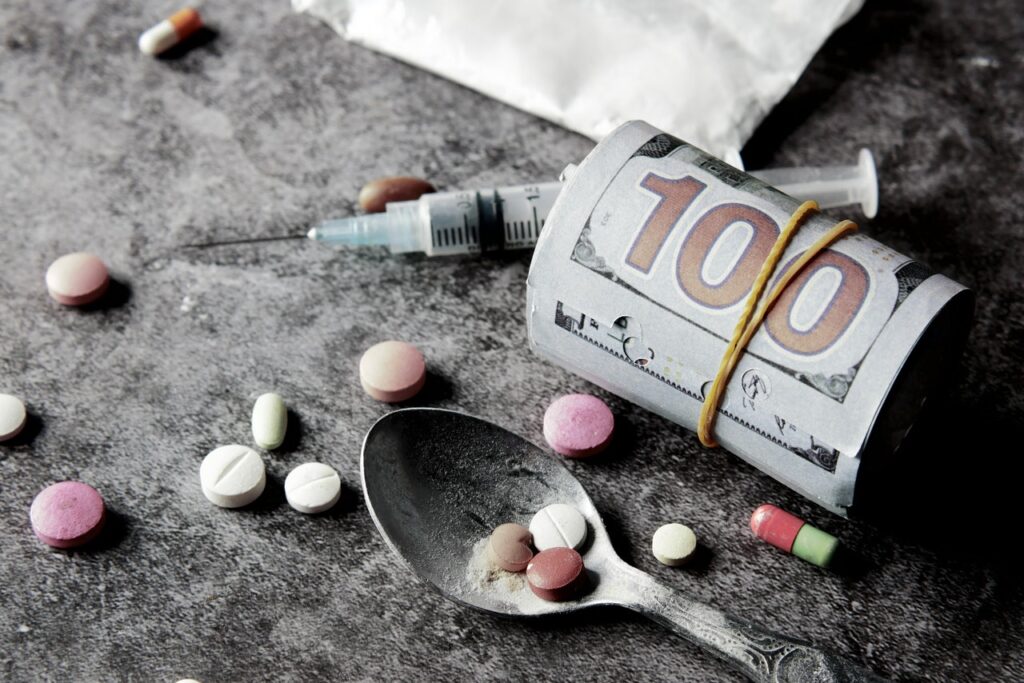
5. Paraphernalia Of Heroin Use
The items used to assist in taking heroin can be a clue as to whether someone may be suffering from a heroin addiction.
You should look out for the following items:
- Burned spoons
- Needles
- Bags containing white powder
- Foil
- Items that could be used as a tourniquet such as a shoelace
What Causes Heroin Addiction

There are many reasons why a person may become addicted to heroin, although it is important to remember that anyone who takes the drug stands a chance of becoming addicted to it.
However, there are certain things that can make some people more susceptible to heroin addiction.
These include:
1. Genetic
In people with lower dopamine D2 receptors in the brain, heroin addiction has been noted to be more prevalent.
Examples of this might be those who have developed associated with gaining rewards from certain behaviours, as well as those who are naturally more impulsive.
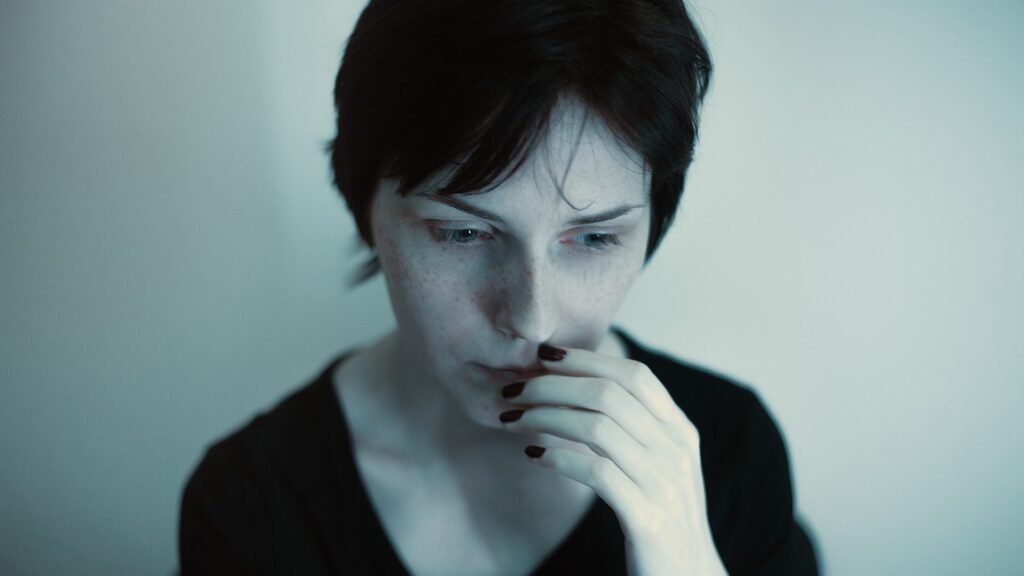
2. Personality
There are certain personalities that may be more likely to become addicted to heroin, including those who are more impulsive.
In this instance, even those who are aware of the potential risks of heroin use will place the reward in a higher standing.
In some cases, those who have previously taken prescribed opiate-based drugs may be more likely to become addicted to heroin due to wanting to experience the same sensations once again.
3. Social
Young people who struggle academically or socially, including anti-social behaviour, may be more prone to turn to drugs such as heroin.
However, there is also evidence to suggest that people who are subject to abuse might also be more likely to struggle with addiction.

4. Family History
If a child is exposed to drugs and addiction from the adults responsible for them, it is much more likely that they may develop an addiction themselves.
5. Mental Disorders
Many people with mental health disorders may seek solace in recreational drugs.
Patients may believe that self-medicating will ease their condition and for this reason, those with mental health disorders are more likely to develop an addiction.
Effects Of Heroin
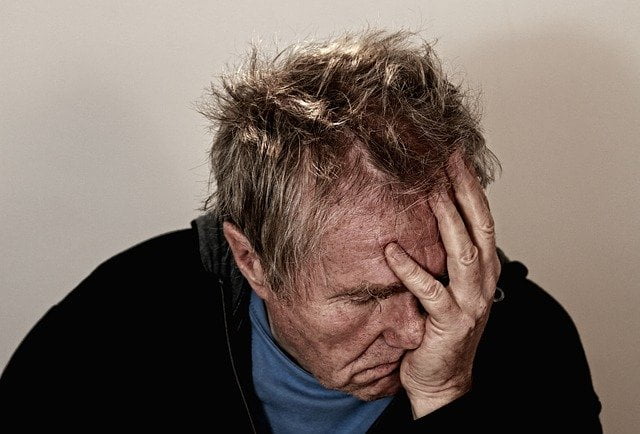
There are multiple effects that can be seen after taking heroin.
Some of these will only be evident for the short term, whereas others are long term consequences.
Short Term
When heroin reaches the brain it turns into morphine.
This can have an immediate impact on the physical being, with some effects being as follows:
- Feelings of euphoria and happiness
- Dryness in the mouth
- Warm skin
- Heaviness in the limbs
- Vomiting
- Itching
- Becoming drowsy
- Fuzziness of the brain
Long Term
With continued use of heroin, there stand to be more serious long term health effects:
- Trouble sleeping
- Collapsing of the veins
- Heart infections
- Skin infections
- Mental health disorders
- Liver disease
- Kidney disease
- Lung disease
- Irregular periods in women and possible miscarriage during pregnancy
What Are The Effects Of Heroin Overdose?
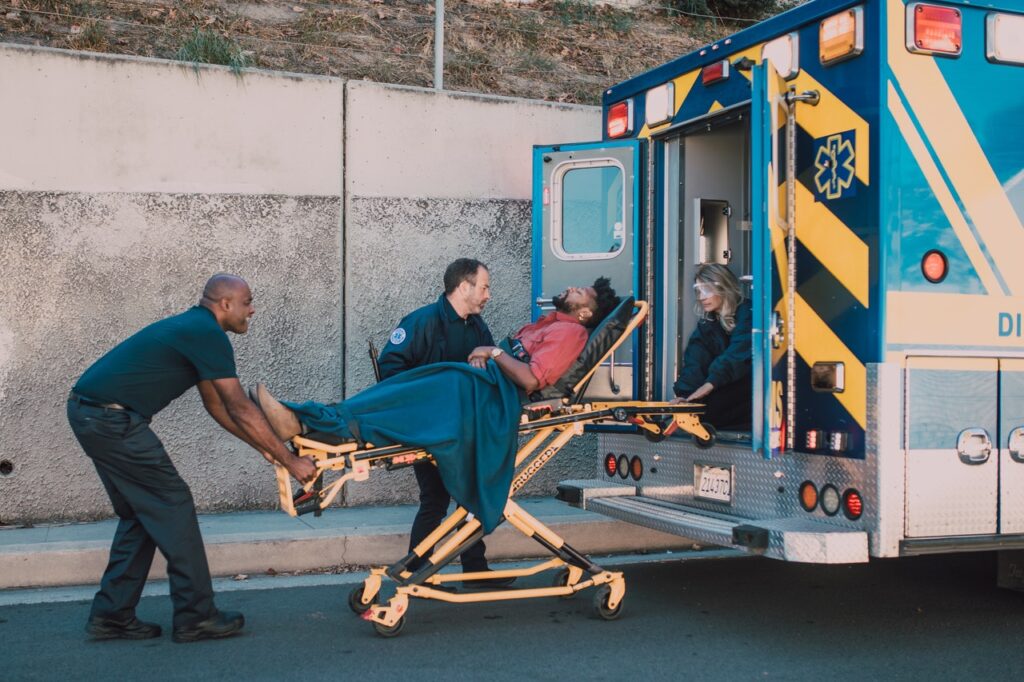
Every time that heroin is taken, there is the possibility of an overdose, especially in those who have developed a high tolerance to the drug.
There are some serious effects that overdose can cause, however, there are also certain signs that you can be aware of.
If you notice any of the following signs, urgent medical assistance should be sought.
- Small pupils
- Shallow breathing
- Decreased heart rate
- Lowered blood pressure
- Cramps in the muscles
- Tremors or spasms
- Areas around the mouth and fingers becoming blueish
- Becoming unconscious
Physical Dependence

The more heroin a person consumes the more likely they are to build up a tolerance to the drug, and then experience withdrawal symptoms when they stop taking the drug.
If a person reaches this stage, they have developed a physical dependence on heroin.
Physical symptoms associated with heroin withdrawal include:
- Experiencing a low mood
- Feeling depressed
- Fever-like symptoms
- Muscle aches
- Sweating
- Insomnia
- Nausea
- Diarrhoea
Psychological Dependence
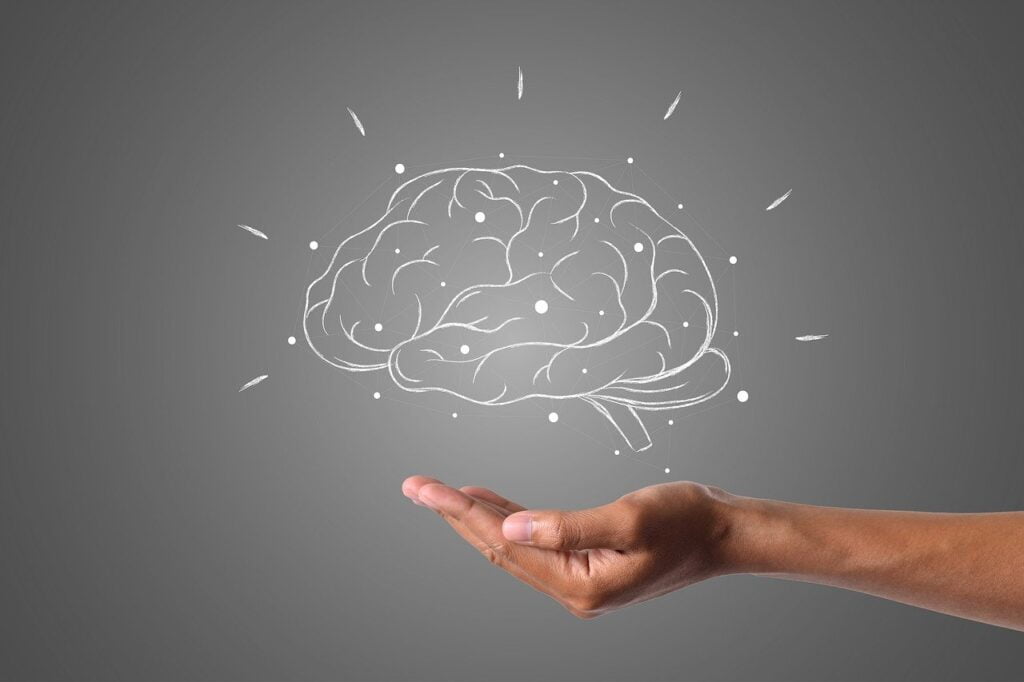
The powerful feelings of euphoria and an accompanying positive mood reinforce the likelihood that a person taking heroin will want to take the drug again.
This is particularly likely if achieving a pleasurable state is important to that person.
If this is the case then it can be said that they have developed a psychological dependence on heroin.
Heroin Addiction- Treatment Considerations

Addiction recovery experts who design treatment programmes advocate a long-term treatment schedule, with different considerations needed at various stages of the programme to ensure people who are making progress do not relapse.
This is why a complete lifestyle overhaul is necessary so that people can use a multitude of physically, psychologically, emotionally and spiritually enriching strategies and sources of support to keep their need for heroin at bay.
Treatment Setting
All clients seeking help for heroin addiction can have treatment as an outpatient, where they access psychological and pharmacological support whilst still living at home.
Alternatively, they can book into a residential rehab setting for several weeks, where they will be closely monitored and protected from the temptations that may trigger their heroin use.
Treatment Goals
Drug rehab treatment specialists set several goals as well as reducing or stopping clients’ heroin use.
These include reducing the current and future physical harms of excessive heroin use and enhancing the quality and well-being of clients’ lives.
Experts in heroin addiction advocate a holistic approach to treating the condition, which involves treating the client on a biological, psychological, social and spiritual level.
Pharmacological Treatment
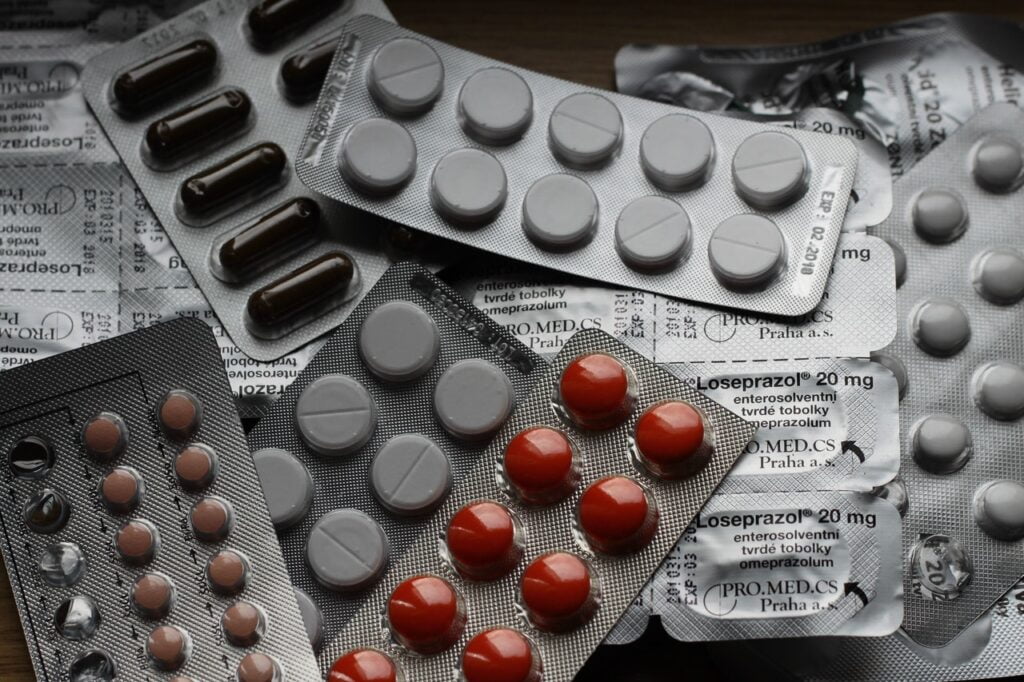
This is essentially medication-assisted therapy where clients will be placed onto an individually tailored programme of prescribed substitute drugs to help them reduce the amount of heroin in their bodies.
Detox
Anyone who has developed a tolerance to heroin will sooner or later suffer from withdrawal symptoms when they attempt to stop using the drug.
This is because their body -in particular the opioid receptors in the brain– have adapted to the presence of heroin.
If a person stops taking heroin then their body will need to readjust to its absence, resulting in withdrawal symptoms.
If a person has reached this stage, then it can be assumed that they have become physically dependent on heroin and therefore require detox to reduce the level of heroin present in their body.
The intensity of the withdrawal symptoms a person experiences depends on the severity of their addiction.
Medication Used During Heroin Detox
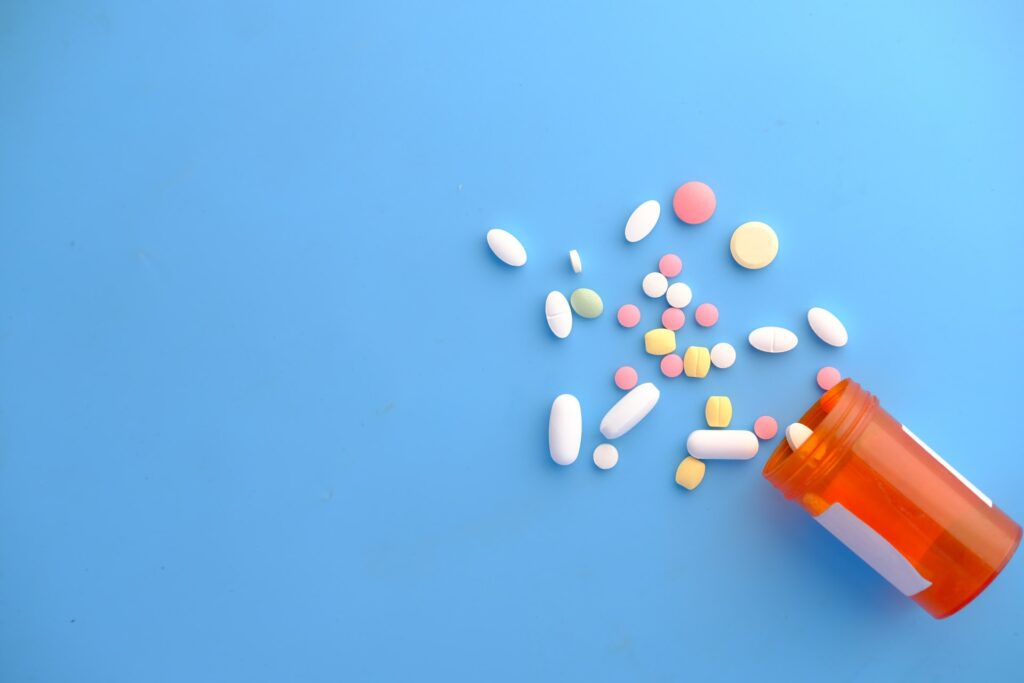
Methadone
Methadone is a synthetic opioid that has been proven to be an effective and reliable treatment for heroin detox for several decades.
Methadone is effective as a substitute drug because it is much slower acting, meaning it only needs to be taken once a day to satisfy withdrawal symptoms.
Although it can be addictive, Methadone possesses chemicals that do not produce pleasurable feelings, which means that any positive psychological reinforcement for continued use of the drug is low.
Buprenorphine
Buprenorphine is another substitute drug used in the detox process.
It is a partial opioid agonist, meaning that it contains chemical elements that do not fully connect to the brain’s opioid receptors.
By taking up space on the brain’s opioid receptors, anyone taking heroin at the same time will not experience its usual effects, making it both less attractive to users and less likely to result in an overdose.
Psychological Therapies

There are an array of psychological therapies and treatments available for clients to engage with as soon as their physical dependence has been stabilised.
The main psychological treatments that feature in addiction treatment programmes include:
Cognitive Behavioural Therapy– This helps people obtain control of their unhelpful, irrational beliefs and thought processes which can lead to low self-esteem and cause them to make incorrect assumptions about themselves.
Motivational Interviewing (MI) -This is an essential resource in a therapist’s toolbox and is applied when clients exhibit any resistance to participating in treatment. This can occur at any stage in their pathway to recovery and the therapist will help the client uncover the reasons for the drop in their levels of motivation.
Group Therapy – Group therapy is a key part of all addiction recovery programmes. People who become addicted tend to lose connections with their friends and family, and group therapy will help them to be able to do this again. They will be able to receive feedback from others on their behaviour and learn to respect, value and show empathy towards others.
Family Therapy – It is thought that many people who develop heroin addiction may have had difficulties in their early family life which may have made them vulnerable to drug use. Family therapists can help families relate to each other more cordially and help them identify and address any unhealthy patterns of communication which may have negatively impacted people in the family.
It can be challenging to bring all members of a family together though for various reasons, so this may not be a suitable form of therapy for all clients.

12 Step Work
The 12 steps are an integral part of the AA philosophy which has been adapted into use for people who have become addicted to drugs such as heroin.
The 12 steps represent a series of psychological challenges that clients have to reflect on and work through to help them give up drugs and lead a fulfilling life with meaning, part of which may contain a spiritual element.

Holistic Therapies
There is a range of holistic therapies available to help clients work through any emotional difficulties that they may find difficult to express.
Therapies such as music, art, drama and equine therapy offer clients another way to communicate their emotions instead of the more commonly used talking therapies.
Holistic therapies help to activate the healing process by engaging with the right side of the brain to express emotions rather than the left side of the brain.
This has been shown to be beneficial to many people who have developed an addiction because of trauma.
Relapse Prevention

All treatment centres develop a range of relapse prevention strategies to help clients maintain their recovery and resist falling back into former drug-taking habits.
These strategies involve looking at several areas of their life rather than just giving up drugs.
All these strategies will add to the quality of their lives.
Coping with strong cravings – CBT techniques will help clients develop the mental skills to deal with strong cravings associated with giving up heroin.
Avoiding drug-taking triggers – This is a typical relapse prevention strategy where the client will be encouraged to list the situations in which they are vulnerable to taking heroin again.
Adaptive coping skills – Clients may be taught drug refusal skills and take part in assertiveness courses to make them more psychologically resilient, and therefore able to state their needs clearly in a range of situations.
Self-care – People recovering from heroin abuse need to start setting clear boundaries in their lives to protect themselves from toxic people and environments.
They also need to identify what nourishes them and have more of this present in their lives.

Physical and mental wellbeing – This involves making sure that your body and mind are always looked after and in an optimum state, which can only enhance a person’s ability to continue recovering.
Eating regular, nutritious meals and developing a healthy sleep and rest routine are also important for physical and mental well-being.
Find meaning in life – People who have successfully managed to abstain from heroin after becoming addicted have been able to find meaning in either their professional or social lives, something that helps them maintain their sobriety.
This may involve a career change from a highly pressurised job to something they are passionate about such as art or photography, getting involved in worthwhile community projects or developing new, spiritual practices that they routinely follow.
Developing healthy family and social relationships – Positive, supportive relationships are very important in sustaining recovery from addiction.
The whole AA recovery ethos is based around the principle of fellowship and supporting your peers towards abstinence something that attendees are encouraged to take into their wider lives.
Belonging is a key human need and the overwhelming research evidence states that having good relationships in your life benefits your mental health.
Other Sources Of Support

There are other sources of support available to resort to whilst waiting for your rehab treatment to commence, which can be an invaluable resource to help you give up heroin.
These are free services and are utilise proven strategies in the support they use.
Narcotics Anonymous
Narcotics Anonymous will provide an opportunity for those with heroin addiction to build connections with other people who have developed problems with substance misuse.
NA is built on the same philosophy as the AA and sees the concept of fellowship amongst its members as a vital resource in the quest for recovery.
NA host regular weekly meetings across the UK to allow its attendees to motivate, encourage and support each other as they battle addiction.
There is also an opportunity to contemplate the 12 steps programme, as these are seen as crucial steps to help people give up taking heroin.
SMART Recovery
SMART recovery provides educational and psychosocial support in its role as a leading addiction-based charity in the UK.
It has a large number of trained facilitators who they use to guide people through their recovery programme.
Its programme has a strong CBT element to it, as it helps to provide clients with the cognitive skills to develop stronger psychological resilience, deal with cravings and implement strategies to ensure they do not relapse.
SMART recovery is also renowned for assisting people with their self-development, which is essential when seeking a new life away from drug use.
Intervention For Heroin Treatment

People who are struggling with heroin addiction may find it difficult to admit that they require help and will often object to it.
It may be the case that the user feels they are not far enough into an addiction to warrant treatment or they may have attempted to quit previously with no success, therefore seeing no point in trying again.
For those around them, staging an intervention may be one of the best ways to help the heroin user to recognise that they have a problem and need help and support.
You may need the assistance of an intervention specialist and it is important to make sure that the intervention is well managed in order for it to be a success.
Finding the right time, place and group of people can be extremely beneficial.
Heroin Addiction And Mental Health

Those with previously existing mental health disorders may be more liable to developing an addiction to heroin.
In contrast, the use of heroin can cause mental health conditions to surface.
In many cases, people with existing mental health conditions may turn to drugs like heroin as a way of self-medicating, but this can have disastrous consequences.
1. Depression
When using heroin, depression can be easily caused.
This can happen as a result of chemical changes within the brain or because of outside effects of the drug such as loss of employment or ruined relationships.
It is important that when undergoing treatment for heroin addiction, depression is treated through talking therapies and support.
If left untreated, patients can end up feeling suicidal.
2. Bipolar Disorder
It has been observed that around 60% of patients with bipolar disorder engage in some kind of substance abuse, and heroin is frequently favoured as it can provide relief from the extremes of this condition.
Many people opt to self-medicate using this drug, however, the potential damage far outweighs the temporary release.
It is vital that, when treating patients with both heroin addiction and bipolar disorder, the approach ensures that the ‘lows’ associated with the condition are not intensified.
Is It Possible To Beat Heroin Addiction?

Despite heroin addiction being very serious, there is light at the end of the tunnel and the addiction can be overcome.
Throughout recent history, medical experts have favoured a methadone program to treat addiction to heroin -however, there are more modern approaches that can be much more effective and successful.
When using a drug such as methadone to replace heroin, this should only be done as a temporary measure and as a way of reducing withdrawal symptoms.
It is not advisable to use these drugs for long periods of time as dependence can develop and heroin is simply replaced with another drug.
It is much more preferable for a patient to undergo detox and follow a rehabilitation programme to become successfully free of the drug.
For more information on heroin treatment, reach out to us today.


